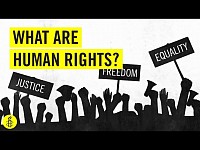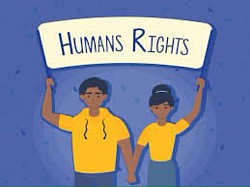Universal Declaration
Universal Declaration
The Universal Law of Human Rights refers to the core principles outlined in the Universal Declaration of Human Rights (UDHR), adopted by the United Nations in 1948. It establishes the fundamental rights and freedoms that belong to every person, regardless of nationality, race, religion, or background.
Key principles include:
Right to life, liberty, and security
Freedom from torture, slavery, and discrimination
Freedom of expression, thought, and religion
Right to education, work, and equal protection under the law
These rights are considered universal, inalienable, and indivisible, forming the foundation for international human rights law.
French
Le droit universel des droits de l'homme fait référence aux principes fondamentaux énoncés dans la Déclaration universelle des droits de l'homme (DUDH), adoptée par les Nations Unies en 1948. Elle établit les droits et libertés fondamentaux de toute personne, sans distinction de nationalité, de race, de religion ou d'origine.
Les principes clés comprennent :
Droit à la vie, à la liberté et à la sécurité
Droit à ne pas être soumis à la torture, à l'esclavage et à la discrimination
Liberté d'expression, de pensée et de religion
Droit à l'éducation, au travail et à une égale protection devant la loi
Ces droits sont considérés comme universels, inaliénables et indivisibles, constituant le fondement du droit international des droits de l'homme.


